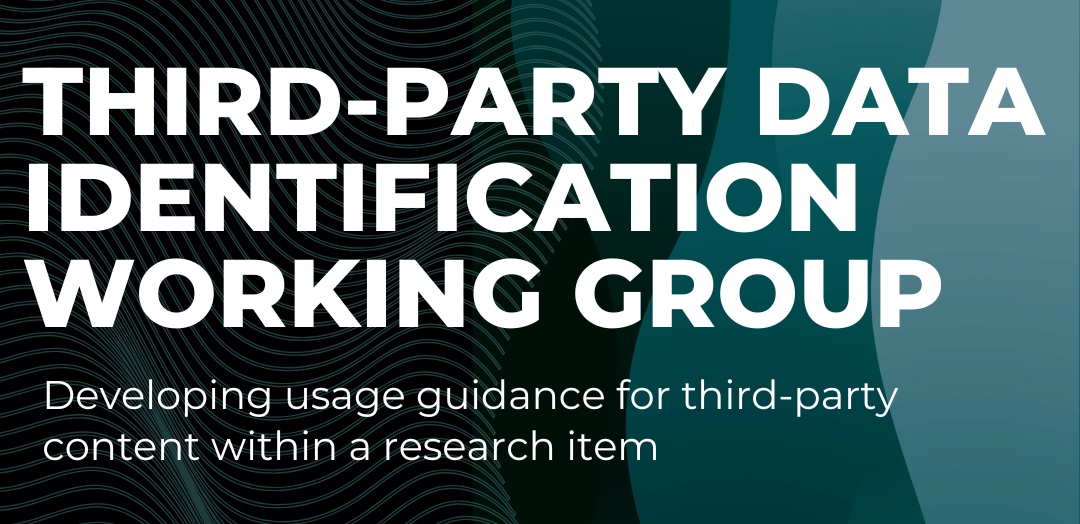Summary of panel discussion: Exploring the AI impacts on research creation, distribution, and discovery
Summary of panel discussion: Exploring the AI impacts on research creation, distribution, and discovery
At the June 2025 all-member meeting, we invited Elizabeth Attah (Bloomberg) and Rahul Ravikrishnan (Eidosmedia) to share their insights on the AI impacts on research creation, distribution, and discovery. Liz is a product manager for Bloomberg’s research & analyst product team, focusing on the Document Search DS platform. Rahul is currently the Head of Product – Research at Eidosmedia. Liz and Rahul have significant expertise in this area; see their bios at the bottom of this article.
A summary of this wonderful panel discussion is below.
Liz helped open the discussion by observing that end users – meaning both research creators and research consumers – have varying levels of comfort, experience, and sophistication regarding AI, and emphasized the importance of helping clients navigate the opportunities that AI can provide.
Since Eidos’ customer base includes those who use their tools for newspaper creation and those who use it for investment research creation, Rahul shared some of the similarities and differences he has seen between these two industries, observing that the investment research side has regulatory considerations that usually necessitate them moving slower.
Trust is an issue that we often hear about when discussing AI, and it was no different on this panel. In explaining ways that AI is affecting the process of searching for and gaining insights from investment research, Liz observed that the trust needs to exist first, and consumers need to feel that they can both trust the firms that are creating the tools and trust that the tools will provide a connection from an AI-created summary to the underlying content. Rahul noted that making it easy for users to access the source material from an AI-generated summary is now considered a baseline expectation, because people want AI tools to help them sift through the vast amount of information available to find that which they want to dig into deeper. The panelists also brought up a different aspect of trust: that both sellside firms and third-party vendors need to have trust in the security of the systems that are being built, otherwise content owners can’t afford to allow their content to be included.
AI is impacting the research creation process as well, from being used to improve the quality of content to helping vet new sources to facilitating the process of ensuring that compliance rules are being met. Rahul pointed out that many of these tools take metadata – such as RIXML tagging – into account, since this information has been added by the publisher and thus carries extra weight.
When weighing in on where they thought the biggest impact of AI would be felt for investment research, the panelists felt that creating a bespoke experience for each individual will have a big impact, across all parts of the research creation, distribution, aggregation, and consumption lifecycle. Another area will be making the difference between high-quality content, customer experience, and product offerings and low-quality ones more obvious, with some vendors taking full advantage of the benefits AI can allow them to provide while others will fall behind; likewise, the end users who find ways to take full advantage of AI tools will also take the lead. Both Rahul and Liz pointed out that individual analysts and individual firms will find different ways to make the most of AI tools, as they find ways that work best for their workflows, products, and systems.
This is just a high-level summary of the insights that Liz and Rahul shared during this panel discussion and the Q&A period that followed; we thank them for being so generous with their time, and thank all meeting participants for helping make the Q&A portion of the meeting so lively.
Elizabeth Attah
Product Manager – Research & Analyst Product Team, Bloomberg
Liz Attah is a product manager for Bloomberg’s research & analyst product team, focusing on the Document Search DS platform. She focuses on document analytics and knowledge extraction. Before joining the product team, Liz managed the global research contributions data group, whose responsibility is managing our global third party research relationships and ensuring their content is available on the terminal.
Rahul Ravikrishnan
Head of Product – Research, Eidosmedia
Rahul Ravikrishnan, with over 15 years of experience in investment research software, is currently the Head of Product – Research at Eidosmedia, a global technology provider powering research production and publication for leading sell-side Investment Banks, Ratings Agencies, Asset and Wealth managers. Throughout his career, Rahul has been dedicated to crafting innovative solutions that meet the evolving needs of investment professionals on both the buy and sell side. Passionate about the intersection of finance and technology, he believes that embedding next-generation technologies across the research value chain is key to driving future investor success and reshaping how the industry collaborates, curates, and consumes investment intelligence.

